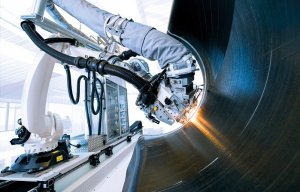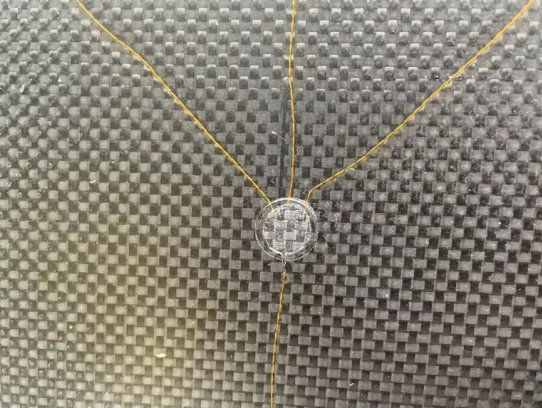
Unlocking efficiency potential for thermoplastic composite parts
Providing accurate data capture of resin flow during infusion.

6th January 2022
Innovation in Textiles
|
Bristol, United Kingdom
The UK’s National Composites Centre (NCC), in collaboration with Cranfield University and aerospace engineering specialist Meggitt, has successfully developed and demonstrated a sensor technology for capturing data during liquid resin composite formation processes.
Research into dielectric sensors, which originated at Cranfield University, was further developed at the composites research centre through the Technology Pull-Through (TPT) programme and then applied in industry by Meggitt.
The sensor system is a significant step towards the digitalisation of resin transfer moulding (RTM) and provides accurate data capture of resin infusion. This can be used to validate computer simulations of the process, enabling manufacturers to reduce the number of initial experimental trials and facilitate a ‘right first time’ approach, crucially reducing the time and cost spent manufacturing components.
Initial research into the sensors was led by Dr Alex Skordos, reader in composites process science at the School of Aerospace, Transport and Manufacturing at Cranfield University, before it was brought to the NCC. This was done through the TPT programme which partners with universities to evaluate and mature low-technology readiness research ready for industry adoption.
Conducting trials of the sensors at typical aerospace material processing conditions of 7 Bar and 180°C, the NCC showed the sensors could precisely detect resin as it flowed inside the preform, as well as its cure progression – both properties that are invisible as the process happens. Furthermore, the sensors provided no adverse effects on either the process or part quality.
Meggitt approached the NCC to use the technology in an ATI-funded project it was conducting with the NCC’s fellow High Value Manufacturing Catapult centre, the University of Sheffield Advanced Manufacturing Research Centre (AMRC), producing industrial scale aircraft components.
The NCC team worked alongside the AMRC and Meggitt to successfully integrate the sensors into a closed RTM tool, with no modifications to the tool being required. In trials, the sensors successfully captured data on the resin flow progression and degree of cure, agreeing with results from previous reports and theoretical models.
“We were interested in applying this sensor technology as a way of building in a smart function to the RTM process for monitoring part production,” said Dr Peter Karapapas, principal engineer at Meggitt. “This is with the aim of minimising the time and effort required in post-production non-destructive testing and inspection on future components as we move towards digital manufacturing. The sensors were robust and effective during the demonstration on the large-scale composite housing part designed for a civil aviation jet engine air-oil heat exchanger.”

Business intelligence for the fibre, textiles and apparel industries: technologies, innovations, markets, investments, trade policy, sourcing, strategy...
Find out more